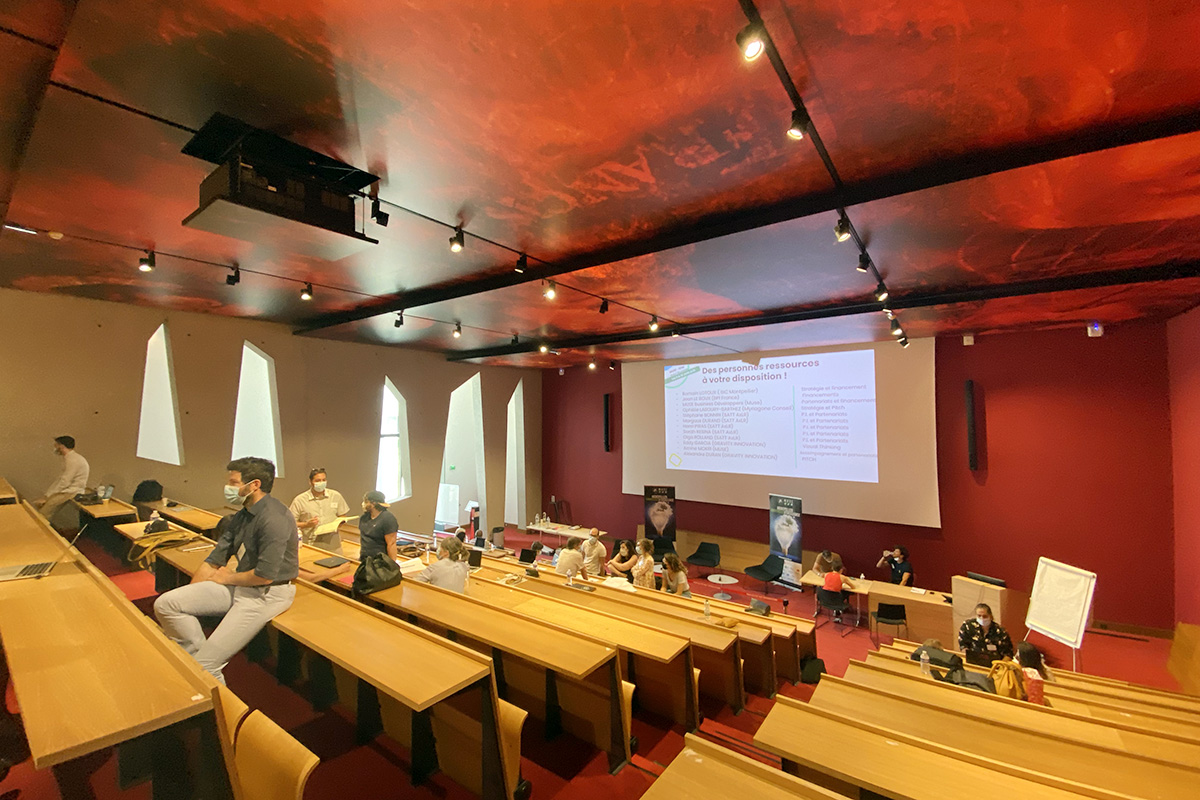BIM: a springboard for your ideas
Do you have a potentially innovative idea in the fields of agronomy, the environment, or chemistry? Not sure how to get your project off the ground? On January 11 and 12, the Montpellier Innovation Booster (BIM) is organizing its third session for researchers, staff, and students at I-Site Muse. Workshops, meetings, conferences—get started and embark on the path to innovation with BIM.

"In France, we certainly don't lack ideas, but we often lack the structures to believe in them and give ourselves the means to develop our innovations. BIM really meets this need," explains Sophie Brouillet. Last June, this in vitro fertilization specialist at Montpellier University Hospital attended two days of workshops on the theme of "biology and health" organized by Montpellier's Innovation Booster.
His goal: to develop embryonic organoids in order to improve our understanding of human embryos and increase the chances of pregnancy for infertile couples. "We lack fundamental and medical knowledge about human embryos. The organoids we want to develop are not capable of producing a baby, but they mimic the early stages of embryonic development very well and could therefore teach us what embryos need to develop properly."
Open to all employees
When she received an email at the beginning of the year informing her about these workshops, Sophie Brouillet initially thought that her project wasn't ready. "I had the impression that it was for extremely advanced projects, with investors, but in the end it was very useful, allowing me to avoid certain pitfalls and better understand how the network works." Open to all I-Site Muse agents, the BIM's mission is to support project leaders at a very early stage. "All you need is an idea with innovative potential to be able to participate," explains Manon Chittaro, skills development manager at Muse.
This support begins with two days during which project leaders will be familiarized with tools and concepts they may not necessarily be familiar with, such as business models. "Participants will learn how to work on an action plan and pitch their project to a jury made up of scientists and stakeholders from the socio-economic world. The aim is for project leaders to receive immediate feedback so that they can evaluate themselves, all in a spirit of goodwill, of course," explains Amine Mokri, incubation project manager at I-Site Muse. Satt AxLr, BIC, and AD'OCC are participating in these days and offering coaching sessions.
Think in terms of the market
"Our goal during these days is also to get them to think in terms of the market," emphasizes Amine Mokri. " Is there anything equivalent on the market? Is there a needfor it ? Etc." Habib Belaïd is a postdoctoral researcher at the European Membrane Institute. He participated in the very first BIM session in 2020 with his project on biomaterials for dental implants. "For me, it was a real springboard towards commercialization and a better understanding of the business world. Thanks to BIM, I also received six months of financial support to work on my prototype."
This support enabled him to join the student and young alumni incubator at the University of Montpellier and win the I-PhD innovation competition organized by Bpifrance. "Thanks to this competition, I am receiving 12 months of support from several consulting firms. I should soon be filing my first patent and launching the start-up in 2022."
The first two BIM sessions enabled around twenty project leaders to refine their presentations and face the jury. It was also an opportunity for the University of Montpellier and its I-SITE MUSE partners to identify promising projects and provide them with support at the earliest stage. "All BIM participants then receive personalized support either from the Muse entrepreneurship or partnership team, or from their own organization if it has a commercialization department. "Whether they want to start a business to promote their technology or simply transfer it to an existing company, there is a favorableinnovation ecosystem in place to help them do so," adds Amine Mokri.
Next BIM on January 11 and 12
Finally, by creating themed sessions, BIM now enables project leaders from the same field to meet and discuss their innovations. "In the biology and health workshops, there were many people working on organoids who didn't know each other. These two days gave them the opportunity to discuss and identify areas where they could work together and engage in interdisciplinary collaboration," concludes Manon Chittaro. The next BIM meeting will be held on January 11 and 12. Are you involved in agronomy, the environment, or chemistry? Do you have an innovative idea? Don't hesitate, sign up now. BIM is waiting for you to develop your projects!
Practical information: to register, please complete the registration form.. Any questions? Contact us by email.